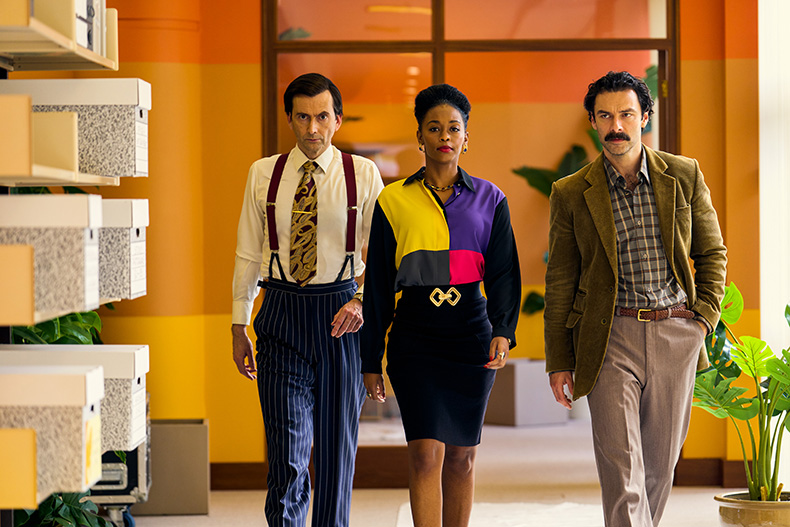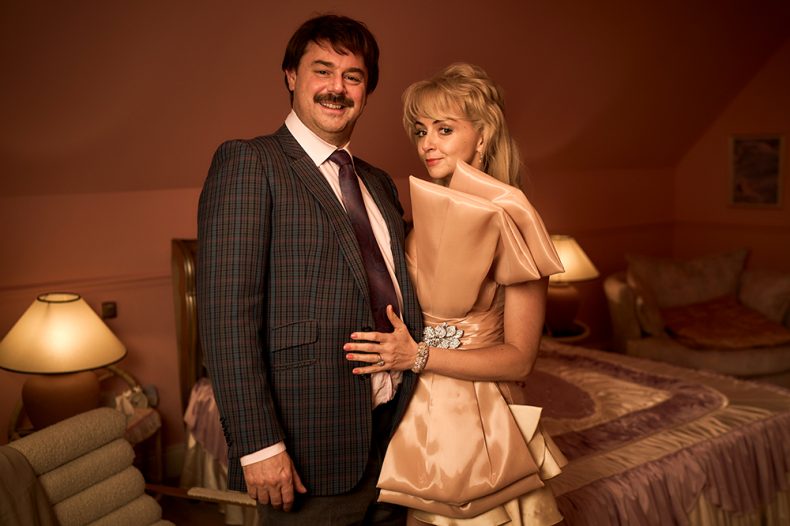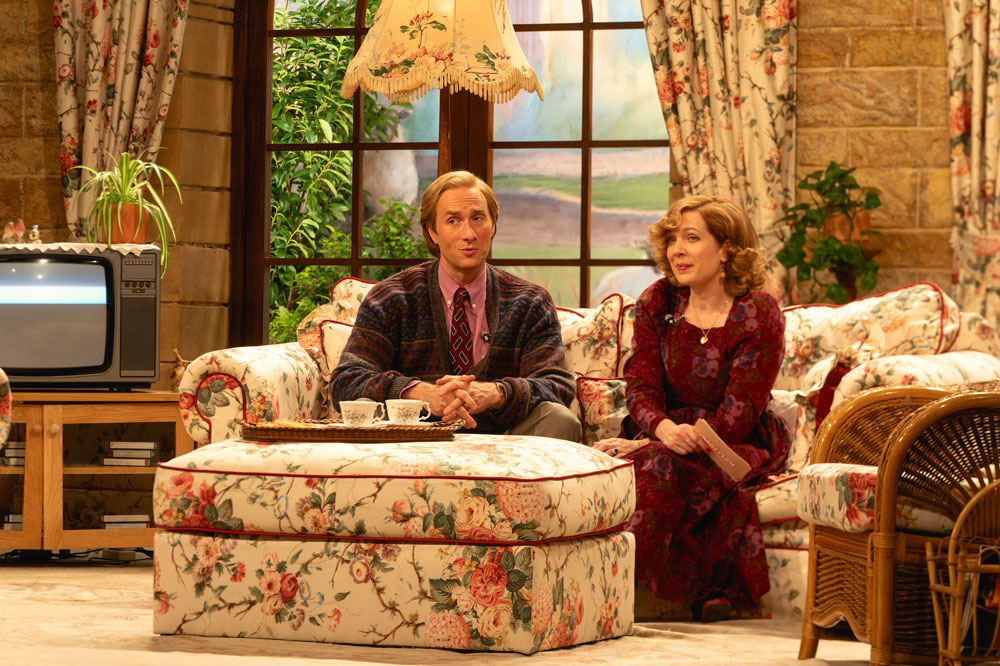Right from the opening titles, Disney’s Rivals leaves us in little doubt of when it is set – the steel balls of a Newton’s cradle, that ne plus ultra of executive toys; what looks to be a red Olivetti typewriter; the crimson stiletto (so unsuitable for the croquet lawn) from the original Jilly Cooper dust jacket. Yes, we’re in the 1980s, and quite aggressively so. Rivals is, effectively, a period drama, but rather than corsets or Empire-line dresses we are subjected to acres of taffeta, velvet and lamé, while every second male cast member sports a luxuriant Nigel Mansell moustache. There are leg-o’-mutton sleeves and peplums, aviator-style spectacle frames and red braces, the inevitable cordless phones in walkie-talkie proportions, Concorde, roller boots; even a brace of Sinclair C5s are wheeled out. And all of this to an on-the-nose soundtrack of Tears for Fears, Bonnie Tyler and Adam & The Ants that comments on the action with all the subtlety of a Murray Walker voiceover.
The literary adaptation for which all these design notes are pressed into service is not a genteel comedy of manners but a lurid bonkbuster, where the ripped bodices are purchased from Littlewoods and office workers rut alongside a calendar saying ‘1986’. At one point Katherine Parkinson, as the tightly permed author surrogate Lizzie Vereker, admonishes the rakish Rupert Campbell-Black (Alex Hassell), a champion showjumper turned Thatcherite cabinet minister, in a manner that explicitly refers to Jane Austen’s Emma. But the social faux pas behind ‘Badly done, Rupert’ is the unsolicited insertion of his permatanned fingers up the skirt of a waitress during a dinner party. What would Uncle Walt say?

It being the 1980s (as we are incessantly reminded), Margaret Thatcher is a constant, ghostly presence – impersonated by Parkinson, inaudible at the other end of a phone line, portrayed in long shot by a body double. Her legacy is also where Rivals approaches social commentary, hinging as it does on the conflict between old money, new money and even newer money. (The important thing is that everybody has piles of the stuff.) The characters are defined by their class, yet none of them seem to exhibit any. Peers of the realm and nouveau-riche entrepreneurs alike are gilded grotesques who dance along to the Birdie Song. Only Nafessa Williams emerges with anything approaching sartorial dignity, playing an American TV executive whose power-dressing wardrobe of Armani and Hermès could have been ripped from the pages of the yellowing fashion magazines that various extras are shown reading.
With its penchant for constipated smouldering, its joint love of kitsch and pornographic excess, Rivals resembles nothing so much as an eight-hour commercial for Nescafé Gold Blend directed by Jeff Koons. The tawdry glamour and slick ad-man’s sheen evoke the winking melodrama of a telenovela, but in the most parochial manner, more Howards’ Way in spirit than Dallas. The bathos is presumably intentional; this is, after all, a drama that hinges on competing bids for the renewal of an ITV regional franchise. There is, perhaps, a sense of nostalgia for the days when television programmes could pull in 20 million viewers at a time, and Aidan Turner as Declan O’Hara (an idealistic Wogan with a Borat ’tache) is given a stirring speech in which he speaks of television as ‘the greatest art form man has created’. Yet the script subverts itself here, since the kind of highbrow series O’Hara is seeking to commission would explicitly exclude Rivals, a knowingly shallow parade of full-frontals and campery that offers very little other than surface. And what could be more 1980s than that?

Rivals is available to view on Disney+ now.



